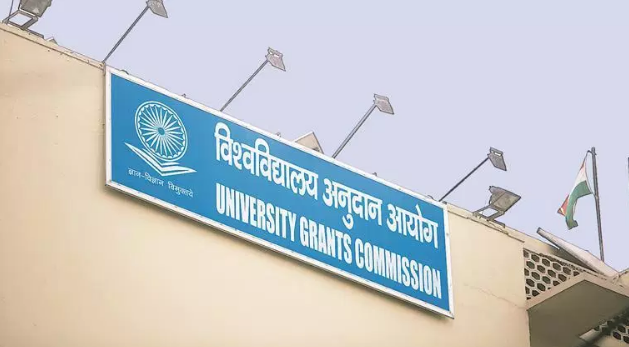Higher Educational Institutions Must Fill Vacancies Within 6 Months: UGC

Image Courtesy: The Indian Express
The University Grants Commission (UGC) has issued a notification to all the higher educational institutions to fill vacancies of faculty posts within a period of six months. For a very long time, many of the higher education institutions in India have been working with a serious shortage of qualified faculties.
“The shortage of quality teaching faculty in higher education institutions is a major concern and requires to be addressed immediately for improving the quality of higher education. You are requested to take steps to ensure the vacancies in the universities, as well as the colleges affiliated to your university, are filled at the earliest,” UGC secretary Rajnish Jain wrote to the Vice Chancellors of Universities.
Along with the notification, the University Grants Commission also published guidelines for the recruitment of faculty in Universities, Colleges and Institutions deemed to be Universities. The guidelines notify the steps that the institutions have to follow, which include identification of vacancies, permission for filling vacancies, release of advertisement, constitution of selection committees, fixing of dates of selection committee meetings, scrutiny of application, conduct of interviews and approval of the competent authority, all within a period of six months. Also, institutions, which fail to meet the deadline of six month period, were warned that their UGC grants may be withheld.
Also read: The Proposed Abolition of the UGC Will Increase Political Control
In the central universities itself, there is about 33% teaching posts which are lying vacant. By this move, almost 6,100 posts for teaching faculties will be filled in 44 central universities, this includes 4,000 posts from Delhi University alone. More than 50,000 vacancies will be filled over a period of time.
According to the new notification, the selection process should be strictly in accordance with the University Grants Commission (Minimum Qualifications for Appointment of Teachers and other Academic Staff in Universities and Colleges and other Measures for the Maintenance of Standards in Higher Education) Regulations, 2018. As per this law, new recruitments will be based on the candidates’ performance in interview only, and there will be no written tests. However, this point has led to the rise of serious doubts on the credibility of interview-based recruitments, as there are more chances of corruption and nepotism increase. The decision also seems to be against the federal system. For example, in Kerala, recruitment of teaching faculty is done through the state Public Services Commission Board’s written examination, and interview takes place only in the second stage. But the UGC notification will affect this system of recruitment in state universities through state PSCs.
Another major issue which arises is the case of reserved seats. According to report published in The Print last year, “Over 80% seats reserved for Scheduled Castes and Scheduled Tribes at the level of professors and associate professors at central universities are currently lying vacant. Even premier universities like Delhi University, Jawaharlal Nehru University and Central University of Hyderabad do not fare well with 93.10 %, 70.96% and 75% vacancies, respectively.”
The new notification does not give any solution to improve the filling up of vacancies in reserved seats. As per the 2018 UGC regulation, the candidates are shortlisted according to their performance from the undegraduate level to MPhil. What is important to note is that the reserved category candidates do not get any special recognition in this process. The shortlisted candidates are then selected through interview. This policy is a blatant violation of the reservation policy for faculty appointments. Once the new guidelines are imposed, the conditions may only worsen.
Also read: Cabinet Brings Ordinance to Restore 200-point-roster
Get the latest reports & analysis with people's perspective on Protests, movements & deep analytical videos, discussions of the current affairs in your Telegram app. Subscribe to NewsClick's Telegram channel & get Real-Time updates on stories, as they get published on our website.
























